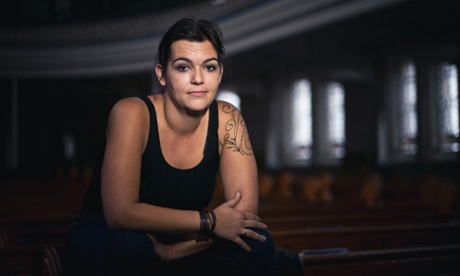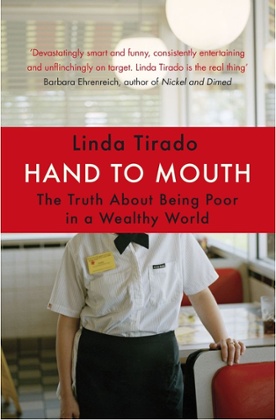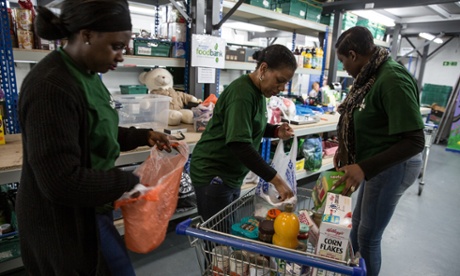
Capitalism requires us to name winners and losers. You can’t have a populace made up entirely of high-earning CEOs and venture capitalists; no surgeon can operate without people to sterilise the room before and after he does his work. For every highly-paid worker, you need 10 labourers in relatively low-skilled jobs to support them, from cleaners and bus drivers to mail clerks and shop attendants. That is how you run a society.
If these people are not keeping up, we say they simply aren’t working hard enough – as if your average service worker were responsible for setting market wages and rents. This is, of course, nonsensical. It isn’t the fault of a worker if income is largely failing to keep up with the cost of living. Nor is it uniquely the duty of the lower classes to live in hairshirts, eating nothing but noodles every day of their life until they die in service to someone’s profit margin.
The working and unemployed poor aren’t necessarily stupid people. But even if they were, it would be hard for them to miss the pointed rhetoric used against them. In America, where I live, politicians take a courageous stance against the powerless: a sitting attorney general in Nebraska gave a speech a few years ago in which he compared welfare recipients to raccoons. Social scientist Charles Murray came right out with it and claimed that “a lot of poor people are born lazy”. In the view of Congressman Paul Ryan, chair of the House budget committee: “We have got this tailspin of culture, in our inner cities in particular, of men not working and just generations of men not even thinking about working or learning the value and the culture of work, and so there is a real culture problem here that has to be dealt with.”
In the UK, you have work and pensions minister Iain Duncan Smith arguing that “work actually helps free people”, as though most poor people weren’t already working, and Conservative councillors claiming that poor families “can’t budget”. Or, if you like, David Cameron: “But we will say something else. People who can work, people who are able to work, and people who choose not to work, you cannot go on claiming welfare like you are now.”
America has an uneasy relationship with its poor. We do not often discuss the fact that our soldiers and teachers qualify for public assistance. We prefer to leave our charity to private organisations rather than government programmes. The result is a patchwork of charities, all with their own goals and aims and requirements and measures of success. All the same, it takes a special sort of person to be able to say, with a straight face, that a western nation is simply spending too much money giving tinned beans out to the needy. Welfare should be more than a simple subsidy to poor people. It is the setting of a basic standard of living for a society; a declaration that lives were meant to be lived at least this well. When we have lost sight of that purpose, we start to do things like cutting programmes meant to ensure that this basic standard is attainable for everyone.
The political pressures are similar on both sides of the Atlantic. We are told by the Duncan Smiths and the Ryans of the world that work is dignity. Their proposals and rhetoric are, I believe, honestly meant to help lessen the burdens we have asked our working classes to shoulder through the economic downturn. But they assume that the trouble is one of will or intelligence, and they seek to rectify this with draconian tough love. Never mind that economic recovery has barely been felt by the working classes (while corporate profits return to their usual levels).
Similarities are easily drawn between the two countries’ systems. As in America, you’re only considered truly needy in the UK if your household includes a child, a pregnant woman, a pensioner or a person with a disability of some sort. We can see this in the statistics around homelessness. In the UK, government statistics recorded 26,940 applications for assistance under the 1996 Housing Act between 1 April and 30 June; 49% qualified for assistance. One might argue that those statistics are proof that aid is being managed wisely. But a UK charity, Crisis, recently produced a study that tested the advice and assistance offered to actors posing as single homeless people. Fewer than half were given the proper help by officials.

I went to a British food bank recently, one operated by the Trussell Trust, to see how it compared with my own experiences. You can’t just call someone up and ask them how it feels to use a British food bank. There is a dance the poor do between themselves when speaking about the charity they have received. It is our duty to inform our friends and neighbours about a resource in the area, but doing so requires both an admission that you needed the help and an assumption that they might. It’s awkward. When I asked people using the food banks to tell me about their experiences, I learned that the dance is the same no matter where you are.
American food banks are filled with day-old bread, donated by the local supermarket. There is an effort at balanced diets, but the vast majority of food is donated on a whim; sometimes it’s three boxes of pastry, sometimes it’s an awful lot of corn. There are decent programmes that are very well-run and precise, but nothing like an organised national effort. Given how much of America is rural, it’s entirely possible to find there isn’t a food bank anywhere nearby.
The Trussell Trust outpost in Westminster, one of the wealthiest boroughs in Britain and with the highest concentration of power, was different. The packages of balanced, cookable meals are only available through referral and aren’t meant to be more than a few days’ solution. They are for the very worst of times; for those instances when your heating breaks down and you have to use your food money on that, or when you need a new uniform for work and it just won’t fit into the budget. I saw real care from the staff at the branch I visited. They were welcoming and professional. But we know that first glances aren’t everything, and so I spoke with a few people who are what we in America call “clients”. Most of their stories probably translate to any western nation – a car accident, a bad flu, a sick child. All little things that were enough to make for a really rough week or month or year. I heard a lot of familiar emotion beyond the cultural differences. It doesn’t matter what accent you put on fierce pride and daily worry – the effect is the same.
“It might look cozy from the outside, but people are suffering in here,” said Michelle Gilby. She sometimes uses a food bank when she needs to. What she kept saying is that you can’t just look at something like this and make a judgment. “Someone working who has to go to a food bank feels quite low,” she said. More than that, she believes that local councils don’t prioritise the needs of people like her.

Although the UK welfare system might be less parsimonious than that in the US, it isn’t enough to take someone out of a life of desperation and ruinous little things. The last Living Standards survey from the Poverty and Social Exclusion research project says 30 million people in the UK are financially insecure. Almost half the population cannot afford to save £5 a week, meaning they can’t afford to make regular pension contributions or pay an unexpected bill of £500. The people I spoke to who used the food bank were in this position. They were simply people who, for whatever reason, found themselves flat broke with more days left than food. They didn’t feel much different about the food bank than they did about their lives in general; it was one more needed resource, but nobody was particularly pleased to be in a position to accept their services. “It’s sometimes quite hard for people to understand where to go,” Gilby said. She couldn’t understand why the food banks weren’t given the same sort of public information campaigns that other public health issues are.
The truth is that people who need food banks do not like that they have to exist at all. They would much prefer decent jobs and a reasonable standard of living. The political climate has turned the words “welfare” and “charity” into epithets, forgetting that welfare is both a guarantee of national stability and a promise that, while record profits are made, there will be nobody starving in the streets. Charity too, is more than a simple giving over of things. It is a spirit of self-knowledge, a realisation that you have enough to spare by any objective standard. Once you know that, it is impossible to insist that a food bank is doing anything other than its job when it advocates on behalf of its clients. It exists simply to give out food to those who need it.
Linda Tirado is the author of Hand to Mouth: The Truth About Being Poor in a Wealthy World.







